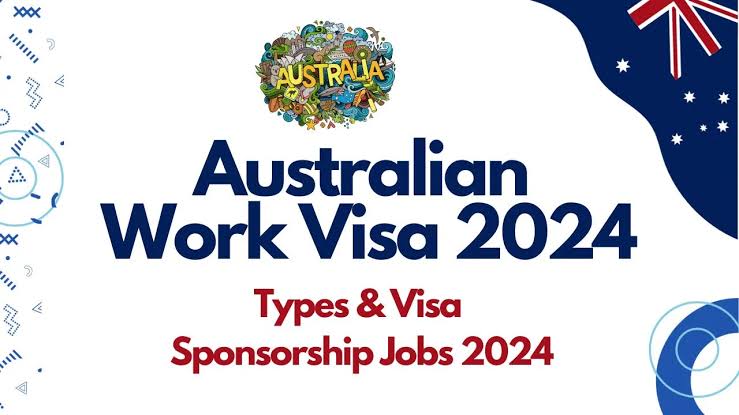Introduction
Australia is currently experiencing significant shortages of qualified electricians in both residential and commercial construction. The construction industry has been booming in recent years, driven by population growth, infrastructure investment, and an increase in housing demand. However, training and immigration levels have not kept pace with this rapid expansion, leaving many companies struggling to find sufficient skilled electricians. This skills shortage presents opportunities for overseas electricians seeking work in Australia.
What is Driving the Electrician Skills Shortage?
There are multiple factors that have contributed to the emergence of an acute shortage of electricians across Australia:
- Population Growth – Australia’s population reached over 26 million in 2022 and is projected to surpass 35 million by 2050. This growing population is driving significant demand for new residential and commercial developments that require electricians.
- Infrastructure Investment – All levels of government in Australia are investing heavily in transport, energy, healthcare, and education infrastructure projects to accommodate population growth and economic expansion. Major projects like metro rail expansions, road upgrades, hospitals, schools, and data centers need electricians for construction and maintenance.
- Housing Demand – Low interest rates, population growth, and wealth accumulation have fueled residential property booms in major cities like Sydney, Melbourne, Brisbane, and Perth in recent years. The high level of new home builds requires vast numbers of electricians.
- Emigration of Tradespeople – Strong economies overseas like Canada, New Zealand, the UK, and Ireland have attracted many Australian electricians and other tradesmen with the promise of better wages in recent years.
- Aging Workforce – Australia’s electrician workforce is aging, with many skilled tradespeople soon to retire, leaving a growing gap between supply and demand. Younger generations are less attracted to trade careers.
- Insufficient Training – Electrical apprenticeship commencements and completions have failed to keep up with construction activity and replacements for retiring workers. Long waits have discouraged potential apprentices.
Unless more is done to boost training numbers and immigration intakes targeted at electricians, it is predicted the shortfall will continue worsening through 2024 and beyond, given Australia’s projected population and infrastructure goals.
The Scope and Scale of the Electrician Skills Shortage
Just how severe is the electrician shortage in Australia according to official statistics and industry surveys?
National Skills Commission Data
The government agency National Skills Commission (NSC) projects the following electrician shortfalls nationally by 2024:
- Residential Electricians – Shortfall of 6,300
- Non-Residential Electricians – Shortfall of 4,800
That’s a combined shortage of over 11,000 electricians across Australia expected in just two years based on known construction activity and retirements.
Master Electricians Australia Survey
Industry group Master Electricians Australia (MEA) surveyed members in 2021 and found:
- 93% were experiencing difficulties finding qualified electricians
- 57% said the shortage was severe
- On average, each business required 3.5 additional electricians immediately
- 69% predicted the shortage would worsen over the next 2-3 years
This paints a worrying picture of many electricians’ businesses struggling to complete jobs and take on new work due to a lack of qualified staff.
Groups Most Affected
While the shortage impacts all parts of the electrical industry, certain areas and specializations are feeling more pressure, according to the NSC:
- Regional and rural areas – Hardest hit due to smaller local labor pools
- Commercial construction – Major projects driving demand
- Industrial maintenance – Requiring experienced tradespeople
- Solar panel installers – Rapidly growing renewable energy sector
- Aged care facilities – Electrical upgrades and works
It’s clear electricians of all types are in extremely short supply nationally based on these official projections and surveys. Remedial action is urgently needed.
Visa Options for Overseas Electricians
Australian government recognizes the dire electrician skills crisis and has opened several visa pathways for overseas-qualified electricians to help fill crucial vacancies:
Skilled Work Regional (Provisional) Visa (Subclass 491)
- For occupations on the Medium and Long-Term Strategic Skills List (MSTSSL), which includes electricians
- Requires living and working in a designated regional area for three years
- Can then apply for permanent residency
- States/Territories can nominate applicants for this visa.
Temporary Skill Shortage (TSS) Visa
- For occupations and locations on the MSTSSL
- Allows overseas electricians to work in Australia for up to 4 years
- The employer must conduct labor market testing and sponsor the visa
- Pathway to permanent residency after three years on a TSS visa.
Regional Migration Scheme
- For occupations on State/Territory priority lists, which include electricians
- Requires living in the designated regional area of nominating state/territory
- Employer provides full-time job offer and acts as a sponsor
- Offers a pathway to permanent residency.
These visa options enable sponsored overseas electricians to fill positions that cannot be filled locally and potentially gain permanent residency after living/working in Australia for the required period.
Jobs, Locations, and Sponsors
With the visa landscape established, what types of electrician roles offer sponsorship in Australia and where? Here are the main opportunities:
Residential Electrician
- Required for new housing developments in major cities and regional towns
- State governments nominate 491 visas in growth areas
- Large building companies provide TSS visa sponsorship nationwide
Commercial Electrician
- Needed for commercial/industrial construction projects
- Major infrastructure projects are sponsored through contracting firms
- Regional centers offer 491 visa nominations for developments
Industrial Electrician/Electrical Fitter
- In demand at mining sites, oil/gas facilities, power plants, data centers
- Resources sector companies sponsor TSS visas for remote projects
- Regional maintenance roles offered under the 491 visa program
Solar Installer
- The booming renewable energy industry urgently needs solar electricians,
- Solar Installation companies sponsor TSS visas in all sun-rich areas
- Regional economic development agencies provide 491 visa nominations
Some key locations where visa-sponsored electrician jobs are regularly advertised include: Sydney, Melbourne, Brisbane, Perth, the larger regional centers, mining areas of WA/QLD, and major renewable energy hubs like north Queensland.
Top sponsors utilizing the 491 and TSS visas for electricians come from property developers, infrastructure contractors, resource companies, building firms, and specialist renewable energy installers. Overseas qualifications must equate to AQF Certificate III or higher.
Frequently Asked Questions about Visa Options for Overseas Electricians
Here are answers to some common questions posed by prospective overseas electricians considering opportunities in Australia:
What English language level is required for the visas?
At a minimum, visas like the 491 and TSS require IELTS test scores of at least 5.0 for all components (speaking, listening, reading, writing). Some sponsors may ask for higher IELTS scores of around 6.0 overall.
Do I need a job offer before applying?
For the 491 visa, you can apply without a formal job offer first if nominated by a state/territory. The TSS visa requires an official full-time job offer from an approved sponsoring employer in Australia.
What places offer the best sponsorship prospects?
New South Wales, Victoria, Queensland, and Western Australia have the most construction/resource activity, so visa sponsorship opportunities are highest in the major cities and regional centers of those states.
Are there age limits on the visas?
Generally, no, but being physically able to perform electrical work safely is important. Overseas qualifications expiry dates based on work experience also need to be considered for visa eligibility.
I have some experience but am not fully qualified. Can I still apply?
Possibly – some sponsorship approvals consider a combination of formal qualifications and extensive work experience equivalating to the required skill level. Documenting experience thoroughly is important.




